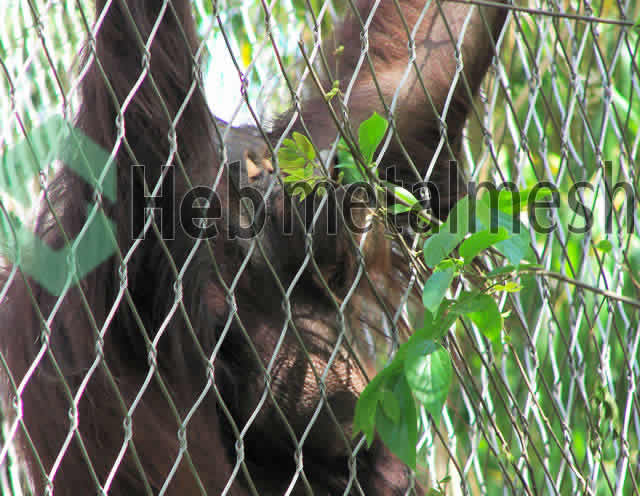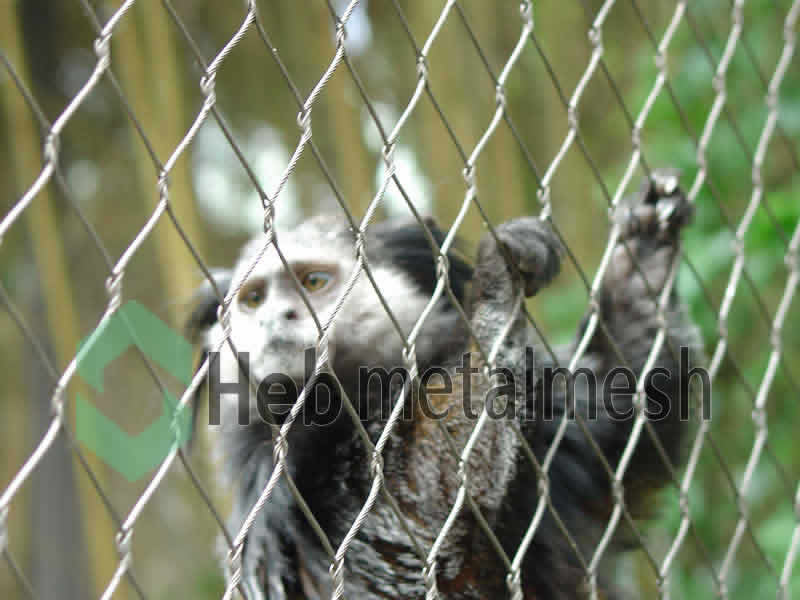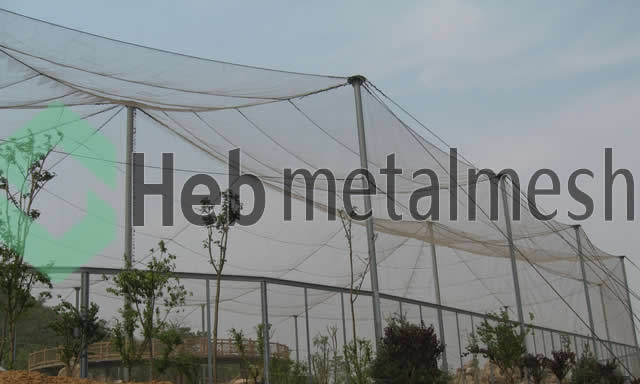Zoo mesh, a specialized form of barrier, plays a crucial role in modern zoological design.
Crafted primarily from stainless steel, it offers strength, durability, and corrosion resistance.

Its flexibility allows for creative enclosure designs, mimicking natural habitats and enhancing animal welfare.
Beyond enclosures, zoo mesh finds diverse applications, from aviaries and safety barriers to themed decorations. This article explores these creative applications, their impact on animal safety, and the future of zoo mesh in habitat design.
The Evolution of Zoo Mesh in Modern Enclosures
Zoo mesh has evolved significantly over the years.
Initially, traditional fencing was used, which often led to injuries among animals.

The introduction of zoo mesh revolutionized enclosure design, prioritizing animal safety and well-being.
Today, its customizable sizes and shapes cater to the specific needs of different species, contributing to the creation of naturalistic and safe habitats.
Material Matters: Stainless Steel as the Premier Choice
Stainless steel is the preferred material for zoo mesh.
Its strength and corrosion resistance make it ideal for long-term use.

The non-toxic properties of stainless steel ensure it’s safe for animals.
Moreover, it can withstand extreme weather conditions, making it suitable for zoos in various climates.
Beyond Enclosures: Diverse Uses of Zoo Mesh
Zoo mesh applications extend beyond traditional enclosures.
Its flexibility allows for creative uses in aviaries, safety barriers, and themed decorations.

The following are some innovative uses of zoo mesh:
- Construction of animal bridges and corridors for wildlife conservation
- Creation of immersive walkthrough experiences for visitors
- Integration with electronic monitoring systems for enhanced security
- Use in temporary exhibits and mobile enclosures
The versatility of zoo mesh makes it a valuable asset in modern zoological design.
Case Studies: Innovative Zoo Mesh Applications
Several renowned zoological institutions have creatively used zoo mesh in their exhibits.
For instance, the use of mesh in multi-species exhibits allows for safe interspecies visibility and interaction.

In underwater exhibits, zoo mesh provides secure containment for aquatic species.
These case studies highlight the versatility and adaptability of zoo mesh in various settings, further emphasizing its importance in modern zoo design.
Ethical and Environmental Considerations in Zoo Mesh Design
The design and construction of animal enclosures using zoo mesh must consider ethical aspects.
This includes ensuring the well-being of animals by preventing injuries associated with traditional fencing.

Environmental considerations also play a crucial role.
The production and disposal of zoo mesh materials should be sustainable, contributing to the overall goal of wildlife conservation.
FAQS: Zoo Mesh Applications for Animal Enclosures & Zoo Projects
Zoo mesh applications provide a versatile, durable, and safe solution for modern zoo enclosures. They offer unobstructed visibility for visitors while ensuring animals remain secure. The mesh is corrosion-resistant, lightweight, and adaptable to complex designs, making it ideal for habitats ranging from aviaries to primate enclosures. Additionally, zoo mesh promotes natural airflow and light penetration, enhancing animal welfare.
High-quality zoo mesh is engineered to withstand animal interaction, such as climbing or chewing, without compromising structural integrity. Materials like stainless steel or galvanized steel with PVC coatings resist sharp claws and teeth. For visitors, the mesh acts as a barrier that prevents direct contact while maintaining clear sightlines. Safety certifications and load-testing ensure compliance with zoo enclosure safety standards.
Yes! Zoo mesh is designed to endure harsh environments, including heavy rain, UV exposure, and temperature fluctuations. Galvanized or marine-grade stainless steel options resist rust, while PVC-coated variants add extra protection against moisture and salt (ideal for coastal zoos). This durability reduces long-term maintenance costs for outdoor enclosures.
Absolutely. Zoo mesh applications are highly customizable in terms of mesh gauge, hole size, and tensile strength to suit specific species. For example, finer mesh works for small birds, while heavier gauges prevent big cats from damaging enclosures. Suppliers often collaborate with zoo designers to create curved, domed, or tiered structures that blend functionality with aesthetic appeal.
Routine inspections and light cleaning (e.g., rinsing debris with water) are typically sufficient. Stainless steel or coated mesh resists bacterial growth and corrosion, minimizing upkeep. For climbing species, check anchor points and tensioning periodically. Most zoo mesh requires no repainting or sealing, making it a low-maintenance choice for busy zoo projects.
Conclusion: The Future of Zoo Mesh Applications
The future of zoo mesh applications looks promising.
With continuous advancements in technology and design, zoo mesh will continue to evolve, offering even more creative and sustainable solutions for animal enclosures and beyond.



Its fine products